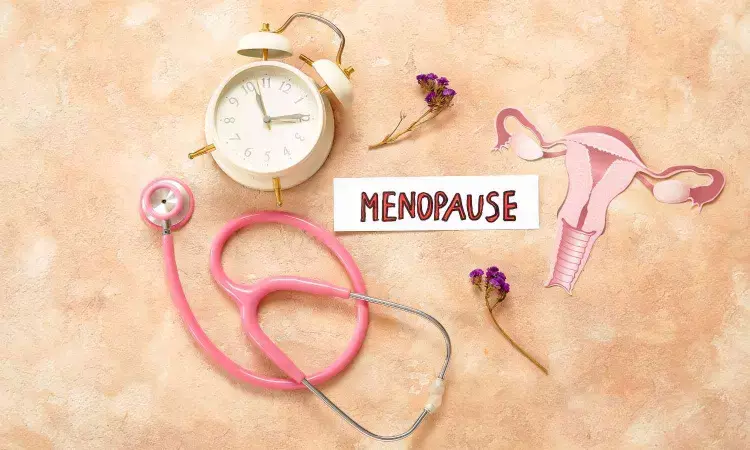- Home
- Medical news & Guidelines
- Anesthesiology
- Cardiology and CTVS
- Critical Care
- Dentistry
- Dermatology
- Diabetes and Endocrinology
- ENT
- Gastroenterology
- Medicine
- Nephrology
- Neurology
- Obstretics-Gynaecology
- Oncology
- Ophthalmology
- Orthopaedics
- Pediatrics-Neonatology
- Psychiatry
- Pulmonology
- Radiology
- Surgery
- Urology
- Laboratory Medicine
- Diet
- Nursing
- Paramedical
- Physiotherapy
- Health news
- Fact Check
- Bone Health Fact Check
- Brain Health Fact Check
- Cancer Related Fact Check
- Child Care Fact Check
- Dental and oral health fact check
- Diabetes and metabolic health fact check
- Diet and Nutrition Fact Check
- Eye and ENT Care Fact Check
- Fitness fact check
- Gut health fact check
- Heart health fact check
- Kidney health fact check
- Medical education fact check
- Men's health fact check
- Respiratory fact check
- Skin and hair care fact check
- Vaccine and Immunization fact check
- Women's health fact check
- AYUSH
- State News
- Andaman and Nicobar Islands
- Andhra Pradesh
- Arunachal Pradesh
- Assam
- Bihar
- Chandigarh
- Chattisgarh
- Dadra and Nagar Haveli
- Daman and Diu
- Delhi
- Goa
- Gujarat
- Haryana
- Himachal Pradesh
- Jammu & Kashmir
- Jharkhand
- Karnataka
- Kerala
- Ladakh
- Lakshadweep
- Madhya Pradesh
- Maharashtra
- Manipur
- Meghalaya
- Mizoram
- Nagaland
- Odisha
- Puducherry
- Punjab
- Rajasthan
- Sikkim
- Tamil Nadu
- Telangana
- Tripura
- Uttar Pradesh
- Uttrakhand
- West Bengal
- Medical Education
- Industry
Cognitive behavioral therapy may help improve sexual function in postmenopausal women: Study

Many women report a decline in sexual function, including desire, when transitioning through menopause. Such problems can contribute to poor self-image and negatively affect physical and emotional well-being. A new study suggests that cognitive behavioral therapy may be a safe and effective treatment for mitigating sexual concerns during this period. Results of the study will be presented at the 2024 Annual Meeting of The Menopause Society in Chicago September 10-14.
Partially due to declining estrogen levels, 68% to 87% of peri- and postmenopausal women express sexual concerns. Despite such high prevalence and negative impacts, treatment options–particularly nonpharmacological ones–are quite limited. In response, researchers initiated a small study to evaluate the efficacy of a four-session individual cognitive behavioral therapy protocol for improving sexual functioning (eg, desire, arousal, pain, satisfaction). Secondary objectives included assessing body image, relationship satisfaction, menopause symptoms (such as hot flashes), depression, and anxiety during peri- and postmenopause.
The researchers found that participants in this study experienced a significant improvement in multiple areas of sexual functioning, body image and couple satisfaction, as well as a significant decrease in menopause symptoms, depression, and anxiety, and self-reported overall health. In addition, 100% of participants indicated they were very satisfied with the treatment and that it helped them cope with their symptoms more effectively.
“To our knowledge, this is the first study that has examined the efficacy of a cognitive behavioral therapy protocol specifically aimed to improve sexual concerns experienced during peri- and postmenopause,” says Dr. Sheryl Green, lead study author from McMaster University in Ontario, Canada. “Results suggest that this type of therapy leads to significant improvements across several important sexual concern domains, and we hope this study will provide the basis for larger randomized clinical trials in the future.”
More detailed results will be discussed at the 2024 Annual Meeting of The Menopause Society as part of the Top Scoring Abstract Session presentation titled “Cognitive behavioral therapy for sexual concerns during peri- and postmenopause, a clinical trial.”
“This study is important to women experiencing sexual health related issues and provides their healthcare professionals with another nonpharmacologic treatment option to discuss with their patients,” says Dr. Stephanie Faubion, medical director for The Menopause Society.
Reference:
Not in the mood for sex after menopause?, The Menopause Society, Meeting: 2024 Annual Meeting of The Menopause Society.
Dr Kamal Kant Kohli-MBBS, DTCD- a chest specialist with more than 30 years of practice and a flair for writing clinical articles, Dr Kamal Kant Kohli joined Medical Dialogues as a Chief Editor of Medical News. Besides writing articles, as an editor, he proofreads and verifies all the medical content published on Medical Dialogues including those coming from journals, studies,medical conferences,guidelines etc. Email: drkohli@medicaldialogues.in. Contact no. 011-43720751


